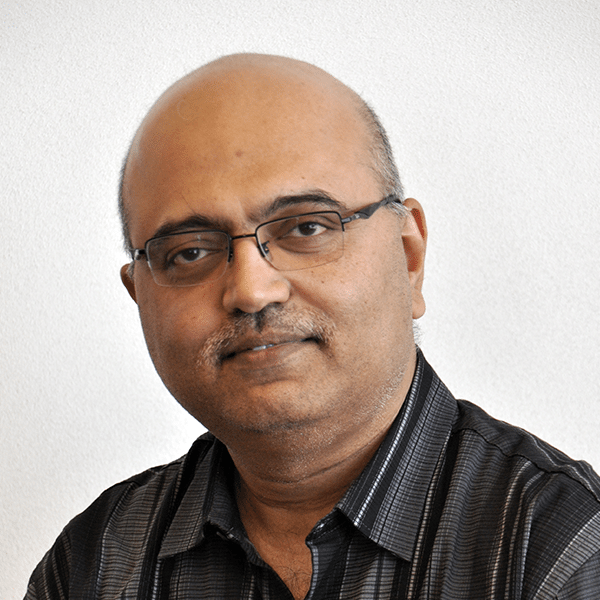
A former researcher in the University of Arizona’s optics school engaged in “a serious case of research misconduct,” Retraction Watch has learned.
Palash Gangopadhyay, who until 2019 was a research scientist at Arizona, used a figure from a 2003 paper by other authors when he co-authored a 2018 paper in Optics Letters titled “High sensitivity magnetometer using nanocomposite polymers with large magneto-optic response,” Wyant College of Optical Sciences dean Thomas Koch wrote to colleagues in an email obtained by Retraction Watch. The 2003 paper appeared in an obstetrics journal.
The 2018 paper has been cited nine times, according to Clarivate Analytics’ Web of Science.
Koch wrote:
Graphically overlaying the figures makes the plagiarism readily apparent, even including replication of details near the noise floor. The falsification is made yet more unambiguous upon recognizing that the plagiarized figure displays the complex pattern from the simultaneous heartbeats of a fetus and mother as opposed to the pattern of an individual heartbeat.
The senior authors of the Optics Letter paper have recently submitted a request to the Editor of Optics Letters to retract the publication.
Gangopadhyay told us he did not have any comment on the retraction. The company where he now works as chief technology officer — Urbix Resources — also said that he does not have any comment.
Koch’s email continued:
The purpose of this note is to make you aware of this set of events in a transparent fashion. This is a most unfortunate circumstance not only for the authors of the paper, but also for the reputation of Wyant College of Optical Sciences both within the scientific community and among the sponsors of our research.
This note is also intended to raise your awareness of the potential for research misconduct among your peers, and these events illustrate the possible negative consequences of inadequate oversight of research. When a remarkable, high-impact result is achieved in a group effort, I believe that it is incumbent upon the collaborators to understand the procedures associated with achieving the remarkable result – perhaps as a witness for a well-advised reality check, but also because insights can always be gained from additional perspectives to further optimizing procedures and results.
Koch concluded:
I am hopeful that the longstanding reputation of scientific integrity and strong technological impact that the Wyant College of Optical Sciences has earned will not be unduly tarnished by this case of research misconduct. I also hope that we all can learn a lesson from this – in particular, that it could happen to any of us if we get too disconnected from the front lines of the science and technology that we are championing.
Like Retraction Watch? You can make a tax-deductible contribution to support our work, follow us on Twitter, like us on Facebook, add us to your RSS reader, or subscribe to our daily digest. If you find a retraction that’s not in our database, you can let us know here. For comments or feedback, email us at [email protected].
As for the research misconduct, the terible consequences of inadequate behavior induced two major ehings. First, it is dishonesty and kidnaps our faith in the truth. Second, it is bad for scientific development. We should shame on this misconduct behavior.
How do these characters always seem to end up with good (and presumably well-paid) positions with technology companies??
That an easy one to answer. because they published what I presume to be a prestigous journal, even if its crap they are publishing. Publishing in a good journal is the sure sign of scientific competence, and if you don’t do that you must be a failed scientist and maybe even an incel (sarcasm). I predict a time in the not to distance future where only the liars with unbelievable publication records can get good jobs in academia and industry.
I notice this too, Bill. By the way- did you take a gander at “Urbix” website?? Their entire About Us page features tired, old USGS .gov website gushes about the wonders of minerals. Entirely. Not ONE single original sentence was written by anyone at Urbix. I am very suspect of Urbix, period.. something about them ‘stinks’ but I can’t put my finger on it. Someone smarter, with more time and resources than I could probably uncover what they are really are all about.
Urbix, too good to be true
Kudos to Dean Thomas Koch for his honest remarks. Not all public university administrators act likewise, even in the face of indistinguishable transgressions as those reported here, especially when money changes hands. See The Journal of Science Practice and Integrity.
So why’d he do it? That’s never discussed here.
To increase the chance he would get a good job. And it worked!
Cheating gives you a huge advantage in scientific research, especially if you dont get caught.